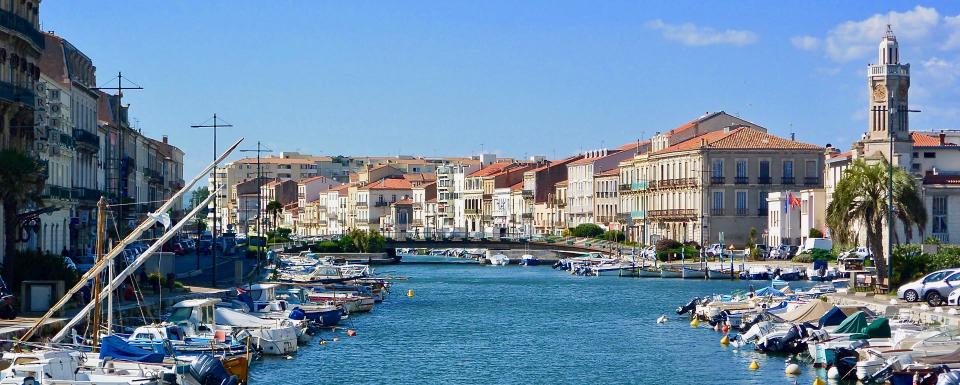
Sète
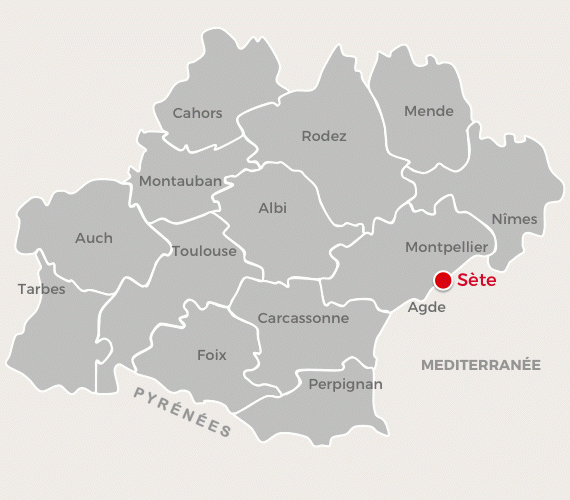
Experience Sète with its canals lined by colourful buildings and crossed by drawbridges and swing bridges. Watch the bustling trade port, old port and marina. Enjoy watching the trawlers and the colourful Catalan boats.
Go as far as La Pointe Courte, the real fishermen's neighbourhood, then the Quartier Haut which feels like Southern Italy. Watch the legendary sailboats at the Escale à Sète Festival which has made Sète famous between the Mediterranean and Thau Lake.
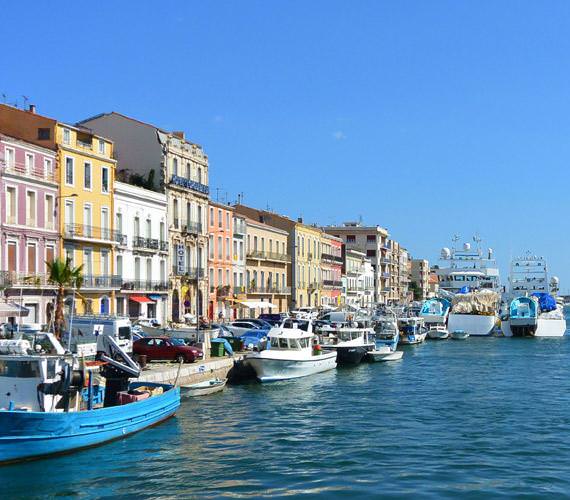
Sète
Did you know?
Over 350 years ago, Louis XIV decided to give the Canal du Midi a maritime outlet: that's how Sète port came to be on July 29th 1666. The date has been celebrated ever since with the city's signature nautical jousts and at the Fête de la Saint-Louis in August.
Did you know?
Sète is the childhood home of 2 major 20th century Frenchmen: singer-song writer Georges Brassens and author Paul Valéry who is laid to rest in the famous sea-facing Cimetière Marin in Sète
Sète has a large artistic community with a vibrant cultural schedule. In terms of museums, there's the Paul Valéry Museum of Fine Arts, the MIAM founded by the painter Hervé Di Rosa, CRAC devoted to contemporary art and Espace Georges Brassens. Let's not forget the outdoor street art MaCO and the summer festivals! Photography, electro, pop, jazz, world music, poetry...there's something for everyone!
Many events are set in the former Fort Saint-Pierre, now known as the Théâtre de la Mer. This open-air amphitheatre hosts international artists, with the Mediterranean in the background.
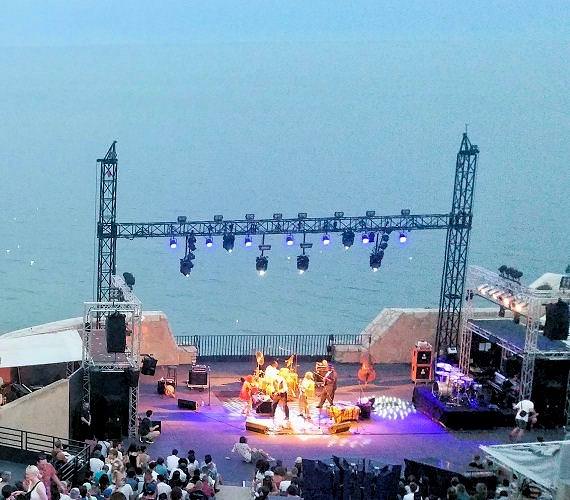
Théâtre de la Mer
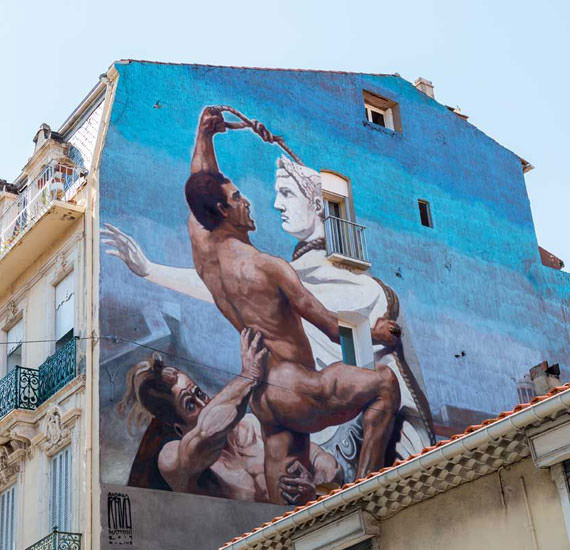
12km of golden sand and a Pavillon Bleu award for the standard of the water! Sète's beaches unfurl along the lido, a dune belt that separates the sea from Thau Lake. It's a lovely nature site made up of salt marshes and vineyards that you can cycle around on the Sète/Marseillan Green Path.
If you go up the Corniche promenade from the city centre, you'll find an unspoilt nature site overlooking the Mediterranean with fabulous views. And be sure to climb up Mont Saint-Clair for exceptional views of the city and sea.
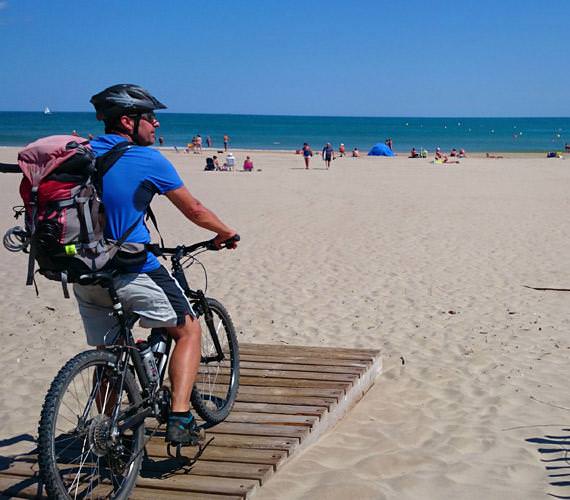
Sète
Mussels and stuffed squid, macaronade (meaty macaroni), cuttlefish in rouille and more: Sète's specialities come from local, Catalan, Italian and Spanish fishermen getting together at the port. The stalls at the Halles are teeming with fish from the neighbouring fish market: this is a great opportunity to try a tielle(small spiced octopus pie) on the hop as you soak up the market's unique atmosphere.
On the Quai de la Marine you'll find countless seafood restaurants where you can sample wonderful shellfish from Thau Lake.
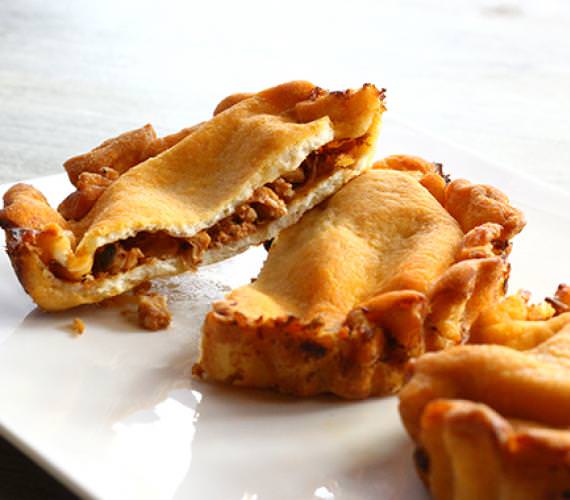
"Tielles" of Sète
Original
Go on a trip around the fish market outside the old port. Fishermen returning to terra ferma is a fascinating show every afternoon. The fish are on the market stalls the next day!

Etang de Thau
A fabulous lake, the biggest in Occitania (7500 hectares)! Thau Lake is packed with biodiversityand famous for its oyster farming. Shellfish producers serve their produce in lovely open-air cafés: try a few Bouzigues oysters washed down with some local wine (Muscats, Picpoul, Noilly-Prat etc.). Visit the Thau Lake Museum, nearby villages with character(Balaruc-le-Vieux, Poussan, Gigian etc.), the Loupian Gallo-Roman villa and beautiful Valmagne Abbey.
Sète is a stopover on the Mediterranean line. Be inspired by our Fabulous Travel suggestions

How to get there
Sète is in the Hérault region 30 mins from Montpellier
Your itinerary with